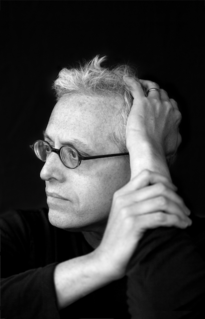A Quote by Simon McBurney
One of the things he liked about playwriting as to any other kind of writing is that a playwright is a w-r-i-g-h-t, not a w-r-i-t-e; in other words, that a playwright is more of a craftsman than an artist of the big novel.
Related Quotes
I think of myself as a narrative artist. I don't think of myself as a novelist or screenwriter or playwright. All of those modalities of processing and experiencing narrative are obviously very different, and I'm not sure that I prefer any one to the other. I think the novel gives you the opportunity to have a kind of interiority that you can't have in the theater, which is pure exteriority.
I love the students - they are remarkable, inspiring people. I would miss teaching if I stopped doing it. The kind of work I do is pretty diverse: I can cast a play while doing a polish of a screenplay, while thinking about a new play and revising another. In other words, the kind of work that I do during my work day is not just writing, yet it is all part of the job of being a playwright.
When I used to teach writing, what I would tell my playwriting students is that while you're writing your plays, you're also writing the playwright. You're developing yourself as a persona, as a public persona. It's going to be partly exposed through the writing itself and partly created by all the paraphernalia that attaches itself to writing. But you aren't simply an invisible being or your own private being at work. You're kind of a public figure, as well.
If you're a playwright, unless you're really lacking in get-up-and-go, you can always get your play up somewhere. You can't necessarily make a living doing it, but theater is about meeting an audience. Plays are not easier to write necessarily, they take less time to write. If you get them up, it's a much more rough-and-tumble kind of existence. I think it's, from my perspective, easier than novel writing.
A playwright, especially a playwright whose work deals very directly with an audience, perhaps he should pay some attention to the nature of the audience response - not necessarily to learn anything about his craft, but as often as not merely to find out about the temper of the time, what is being tolerated, what is being permitted.


































